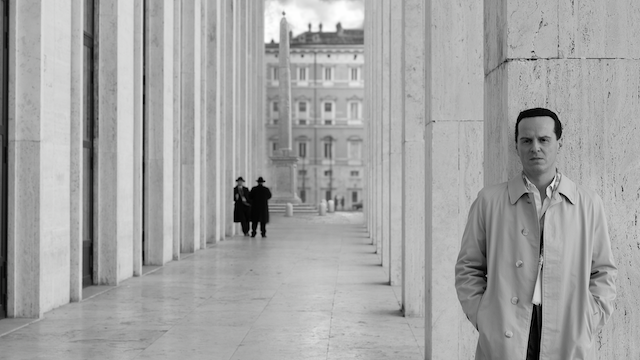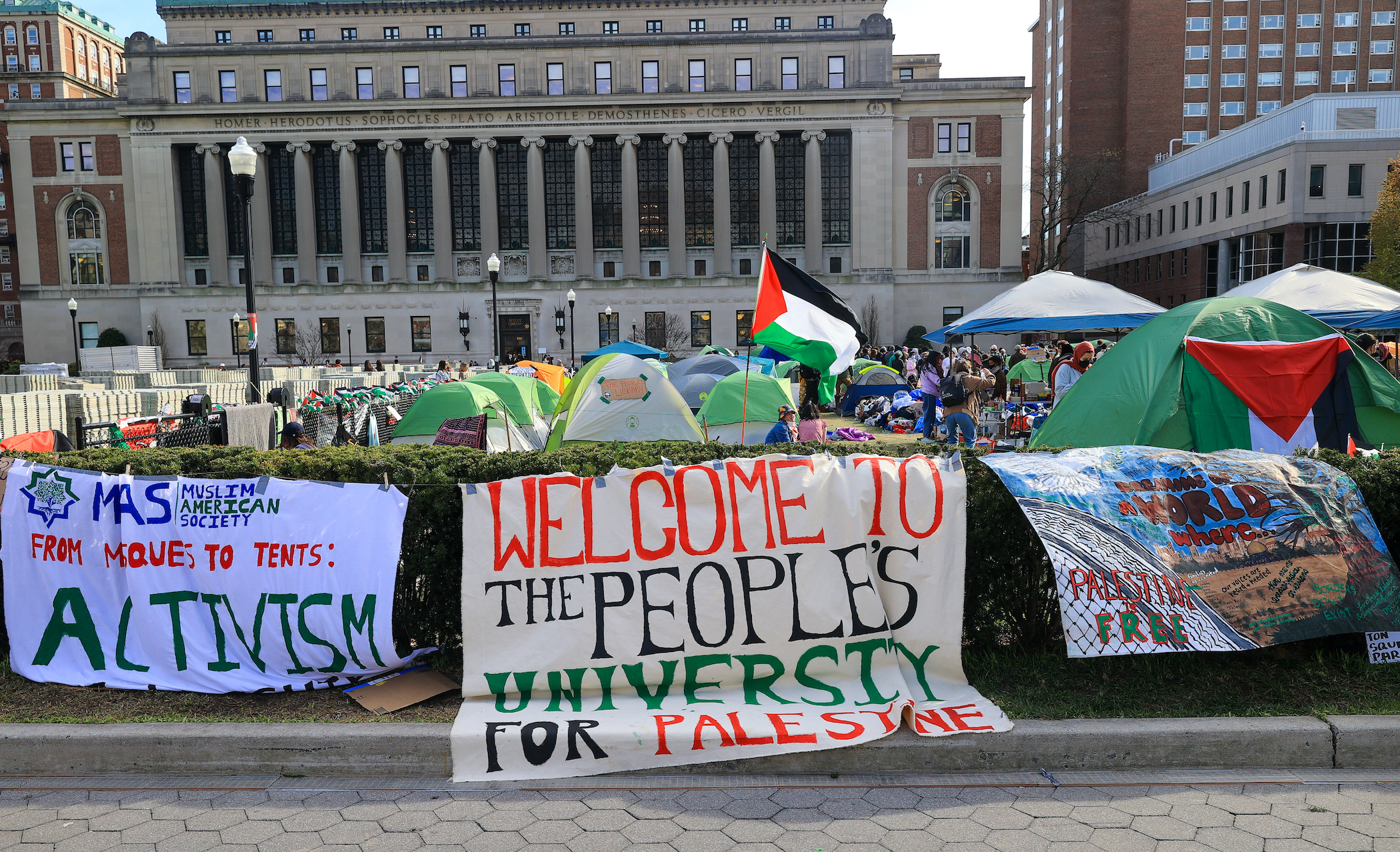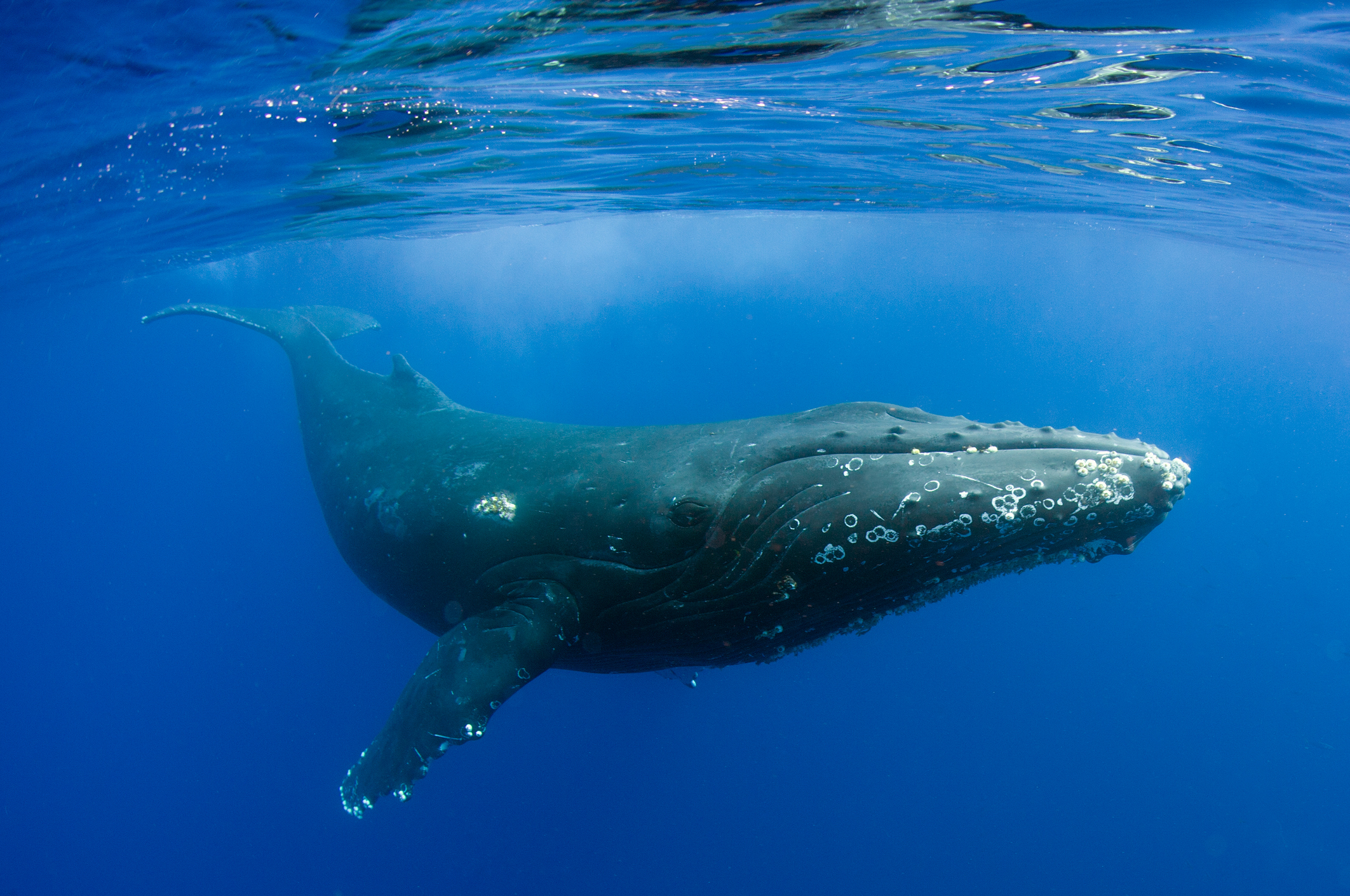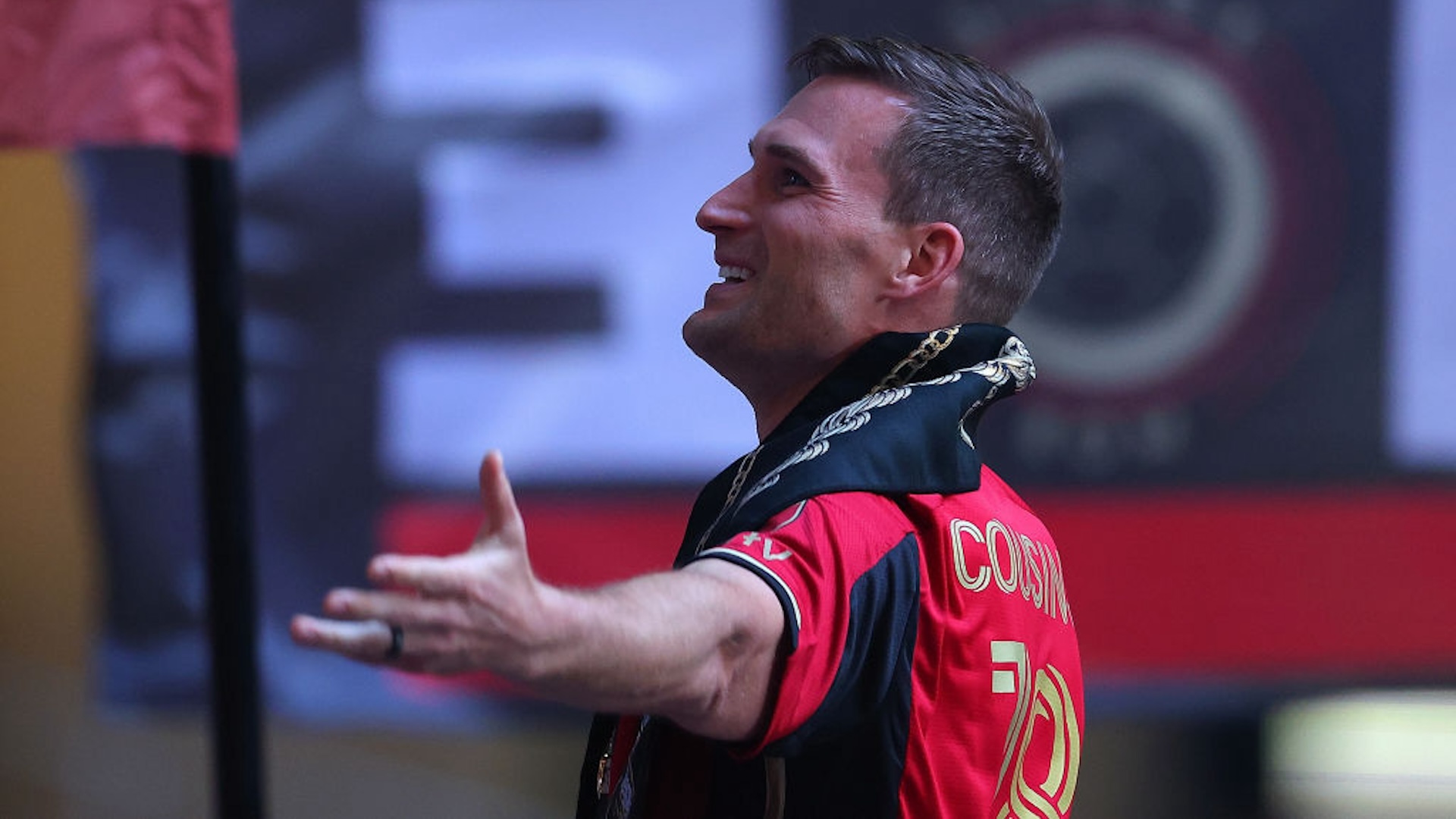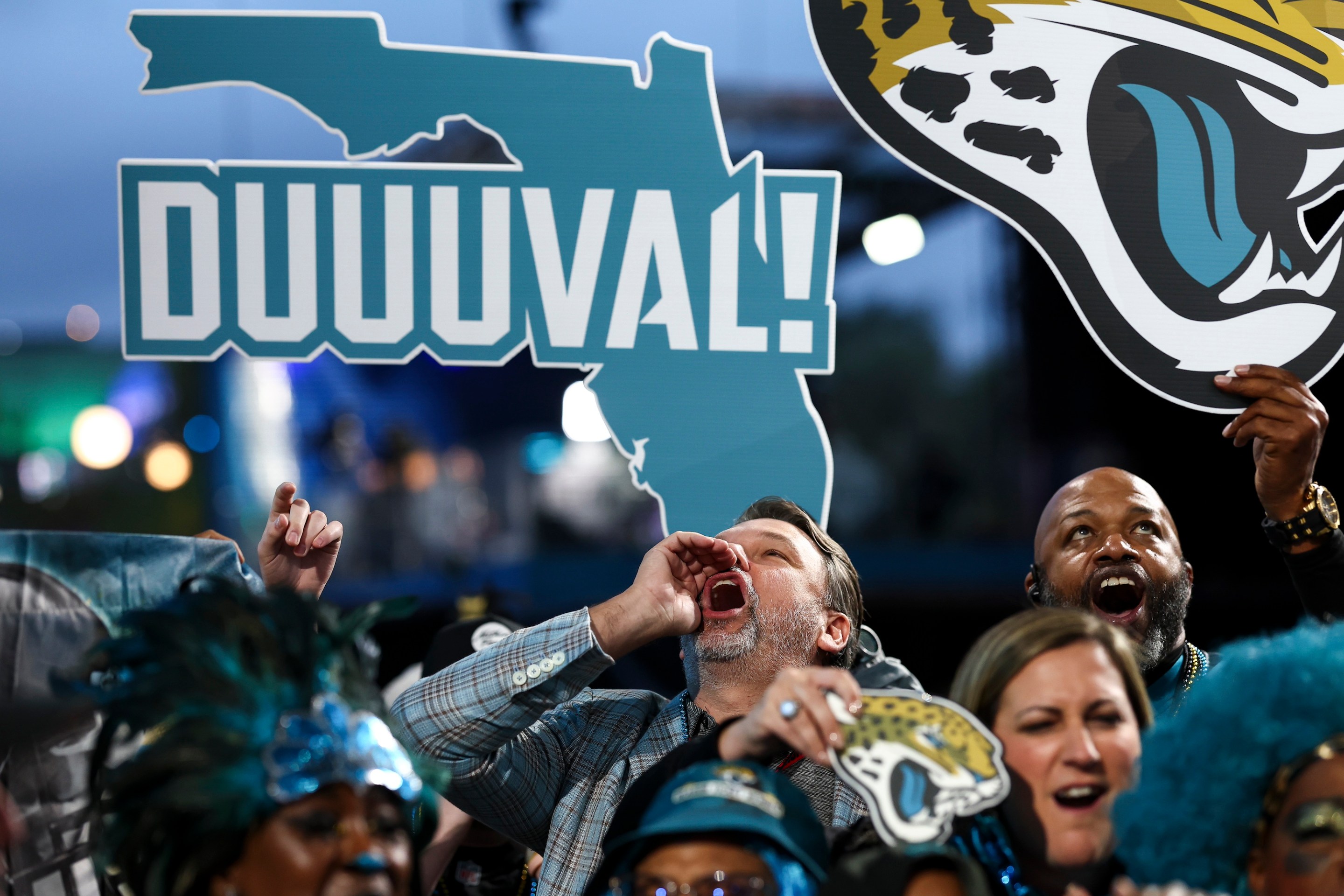The Limits Of Dave Chappelle And Kyrie Irving’s Free-Thinking
11:10 AM EDT on October 20, 2021
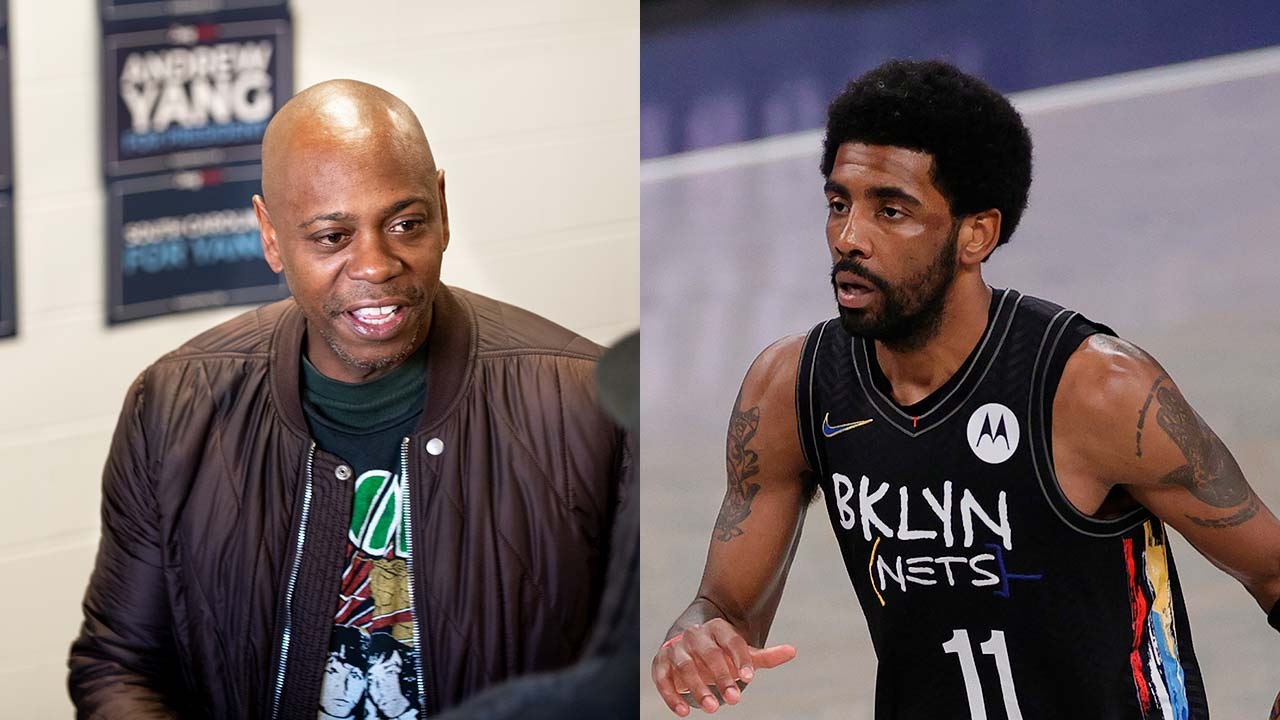
Nearly a decade ago, I was halfway through a semester of teaching a college class focused on critical thinking, and my students had demonstrated an unusual lack of interest in discussing any of the topics they’d researched. In a moment of equal parts hope and despair I said, fine—you choose a topic to critically discuss. A few minutes later they were having their most spirited debate of the semester: Who made the best burrito ever—the lamentable local burrito chain, or Chipotle? One bookish student observed the suddenly impassioned discourse with a mix of bewilderment and disdain, so I calmed everyone and turned to her. I was excited for her to indict the discussion as farcical, embarrassing, beneath the sanctity of the classroom. “You seem incredulous.” She nodded, and said—her voice dripping with condescension—”the obvious answer is Qdoba.”
It’s difficult to believe what’s grist for the mill of popular discourse. There's nothing much interesting to say about Kyrie Irving’s anti-vaccination stance without sinking to and losing yourself within the ludicrous fray. A fool and his money are soon parted. Will that do? Is it beneficial or necessary to scrutinize a hackneyed caricature of a pseudo-spiritual free-thinker manning an incense stand on 125th Street in the 1990s? To interrogate a false idol who communicates with his imagined public on Instagram Live in the rambling, nebulous rhetoric of fortune cookies and horoscopes while leaning on an implied credibility and mysticism of partial Native American ancestry?
It wasn’t even particularly noteworthy to see a hollow, ubiquitous C-list socialite like Chance the Rapper or a perpetual oddity like Stephon Marbury pop into Kyrie’s feed and show support. The latter declared, “You bringing the vaccinated and unvaccinated together. That’s a different power. No one ever seen it before.” It was the usual social media narcissism and its attendant incoherence, false intimacy, cliquishness, and spectacle. To try to wring meaning from it is to ensure little beyond brain calluses.
Until his Instagram Live appearance, the self-proclaimed voice for the voiceless had refused to explain himself before eventually communicating his convoluted rationale by way of anonymous sources. He's not anti-vaccine per se, but he’s not into getting vaccinated, and he seems to shun masks. He’s an advocate for those who could lose jobs and freedom to mandates, but has exhibited scant regard for those who have lost the same things and more to failed efforts to contain the spread of COVID-19. One hint of legitimate insight could be found in the middle of his meandering: “It’s just about the freedom of what I want to do.” That’s a common marker of free-thinkers: extreme self-centeredness, invariably accompanied by delusions of grandeur and persecution. They mistake the regressive for the subversive. So why can’t we stop talking about these assholes?
I suspect part of the appeal is chaos. Free-thinkers offer us the double boon of escape from an increasingly miserable reality and the vicarious thrill of giving a middle finger to the smug orthodoxy. Another aspect is Kyrie’s fame and hyper-visibility as a uniquely talented NBA champion (not) playing on a team full of famous players in a major media market. Finally, there’s the inescapable fact of his race. Black people are ripe for scapegoating. Our dysfunction is amplified by an ever-present, eager, tightly focused societal gaze. Never mind that such a gaze will always reveal more about the observers than the observed. Anthony Rizzo arguably cost the Yankees home-field advantage in the playoffs by being unvaccinated; Chris Sale was one of several unvaccinated Red Sox players who may very well still be unvaccinated in the playoffs. These are big names in big markets with big contracts. No one cares much.
Black men are far more attractive props in our culture wars—attaching your own political or rhetorical agenda to them might give it the sheen of subversive cool to weaponize against perceived antagonists, and make it appealing to a younger, hipper demographic. This could explain how someone like Dave Zirin (whose work I've admired in the past) arrived at the same misplaced if not blasphemous comparison of Kyrie to Muhammad Ali in January as Jason Whitlock and Stephon Marbury did last week. The popular free-thinkers who drive social media outrage and admiration are, to borrow from “The California Ideology,” an amalgamation of opposites. Within their self-mythologizing, grandiose doubletalk, and claims to altruism, you might just find a strand that vaguely resembles a familiar insight.
Unlike Kyrie Irving, Dave Chappelle has not only the popularity but also the credibility to influence discourse beyond bot-generated talking points (“the NBA let Magic Johnson play with HIV, but Kyrie can’t play without being vaccinated”). He’s a uniquely gifted comedian who has achieved the rare transcendence to sage. His routines have evolved from puerile humor sprinkled with societal insights to American Studies and Civil Rights faux-lectures sprinkled with humor. What a long, strange trip it’s been. Let me state up front: I think Dave Chappelle is a generally brilliant practitioner of his craft. It’s also true that I suffered through his latest special and came away thinking of it as an awkward eulogy for the comedian I long admired. Because Chappelle has joined the ranks of the free-thinkers. It shouldn’t have surprised me, really. At any given Chappelle standup you might find a who’s who of prominent free-thinking charlatans—Joe Rogan, Elon Musk, Kanye West—united by obscene wealth, conceit, contempt for authority, and a belief that their free-thinking is beyond reproach. Theirs is a view of freedom that is tantamount to selective deregulation: It’s just about the freedom of what I want to do.
As many of us know by now, the conceit of Chappelle's latest set is a disingenuous analogy: DaBaby faced graver consequences for making off-the-cuff homophobic remarks at a show than he did for murdering a black man in Walmart. It’s the sort of out-of-context, sophistic gambit in which the most cynical members of the right delight. You can see echoes of it in the defenses of Jon Gruden that contrast his emails with the fact the NFL has employed players with domestic abuse and drug issues, as well as some who committed (and in some cases who were exonerated for) worse crimes. The people and circumstances compared are never directly analogous, and the person advancing the argument never acknowledges that regardless of context two things can be bad without either excusing the other.
Chappelle promised it would get worse, and he proceeded in disingenuous fashion. He conflated transitioning with blackface—a comparison that is unsound, ahistorical, counterfactual, and does disservice to both the depravity of minstrelsy and the quest of trans people (like his deceased friend Daphne Dorman) to have a human experience with some dignity. He engaged in the sort of reductive white gaze he tends to critique when he dismissed the MeToo movement as white, despite it having roots in the courage and efforts of black women. He consistently discussed being queer as a white identity, adding an inadequate disclaimer as an afterthought. Along the way he tokenized a black woman comedian friend and the aforementioned deceased trans comic friend. He made the dubious claim of sacrificing $50 million on principle—a self-mythologizing oversimplification of his period of exodus from show business. I won’t touch the closing bit about his friend’s suicide because it was, for better and for worse, so awkwardly personal that it was painful in cathartic ways but also in ways that are morally tenuous.
Still, there's something equally disingenuous about indignantly taking Chappelle to task for punching down, as if the foundation of his legacy is measured critique. The man came to prominence with skits built around crack addiction, black criminality, and black fiscal irresponsibility in the context of reparations. He, like the bulk of comedians, starts from a position of stereotype and simplification and then works outward. One can imagine why a lot of black people are skeptical of the backlash Chappelle is facing. Chappelle ain’t Kyrie Irving. He has gravitas.
One tragedy of Chappelle's special—and Kyrie's resistance to vaccination and his subsequent Instagram Live non-explainer—is that it provoked tired, predictable responses from the liberal orthodoxy. Chappelle and Irving just about wrote the reactionary thinkpieces for their critics. And in this way extremes and outliers continue to drive media discourse, which is the way one ratchets up polarization and religious fervor among true believers, but not the way we deepen the conversation.
My problem with Chappelle’s special is that he wants the regard of an intellectual without being held to the accompanying standard of rigor. I’m fine with comedy that relies on contrived analogies and crude caricatures; being a real-deal cultural critic, on the other hand, comes at the expense of your comedic license. It’s a difficult balancing act, and while he succeeded in just enough places in a couple of his previous shows, he fell gracelessly from the wire in this last one. It has become impossible for me to ignore that Chappelle tends to employ his intellectually dishonest analogies not to clarify the hypocrisy or shortcomings of liberal orthodox thinking, but to excuse bad thinking and behavior by way of obfuscation. (The DaBaby, Kevin Hart, and Louis CK “jokes” being glaring examples.) When the laughs are few and far between, and you’ve planted yourself smack dab in the culture wars raging against criticism, you can't have it both ways. You can't be a free-thinker who doesn't believe you should have to answer for your thoughts. You can't camouflage your self-interested rationalizations as an undertaking of a greater noble cause while having nothing besides judgment, condescension, and grandstanding to offer as proof. And that is where the free-thinker and liberal orthodoxy overlap: They prefer judgment and grandstanding to insight.
For all their hand-wringing, castigating, contempt, and dismissiveness, something Chappelle’s critics in the media refuse to acknowledge is that his takes might just be more closely aligned to public sentiments than their own. This is not to defend Chappelle, but to harken back to a lesson the left taught me when I worked in civil rights: Removing Chappelle’s special only increases the power and allure of the ideas you aim to counteract and correct. The crucial question the left needs to examine is why its messaging is becoming more rigid even as it seems less appealing to so many; why black men in particular seem increasingly susceptible to alt-right-adjacent free-thinking; and how liberal orthodox thought is dovetailing with the alt-right's rebranding as counterculture to create this unholy marriage of black men with people who traditionally view them as disposable.
Chappelle for his part misses a great opportunity to expand the conversation about the blindspots within liberal orthodox thinking. What have we sacrificed in the reflexive devotion to symbolic gestures and codification of decency in place of outreach, community building, and tangible change? Why has the quest for meaningful diversity, representation, and dignity devolved into a scarcity game, in which minority subgroups abandon the relational spirit that can connect their struggles and instead compete for the same small piece of the pie? Has all of this contributed to a degree of polarization that plays right into the hands of free-thinking frauds like Rogan and Musk, who offer people the illusion of dignity and agency simply by presenting them with a chance to stick their finger in someone’s eye?
The liberal orthodoxy is no doubt a silo. Sadly, if there’s someone who might help provoke a reckoning, you’d hope it could be a figure like Chappelle. There were a handful of genuinely sharp and hilarious moments of his otherwise grim special, and one of them was when he responded to being mocked on Twitter with, “I don’t give a fuck, ‘cause Twitter’s not a real place." Which makes all the more macabre his rant last week in Hollywood: “Fuck Twitter. Fuck NBC News, ABC News, all these stupid-ass networks. I’m not talking to them. I’m talking to you. This is real life.” That an uberwealthy celebrity who pals around with Joe Rogan, Elon Musk, and Kanye West declared this to an audience including Brad Pitt, Snoop Dogg, Jeff Ross, and Lizzo, without a hint of the self-awareness that stamps the best comedians, is just fucking depressing.
Dave Chappelle contrasting gay rights with black rights fits right into the scarcity games model that plagues the left. We are caught in a war between free-thinkers and orthodoxy, and I can't see a collective victory regardless of who prevails. The people constantly railing against cancel culture and those seeking to cancel are two pigs feeding from the same trough. That one side has successfully branded itself as a countercultural movement while the other struggles with its own recalcitrance is what allows for people like Irving and Chappelle to drift toward populist grifters and demagogues who promise precisely what the orthodoxy plants its flag on but fails to deliver—a sense of mattering, of dignity.
This discourse, in which public intellectuals empowered by social media platforms do battle with celebrities and charlatans for control of important conversations, reminds me of something the scholar Roderick Ferguson wrote: Another aspect of neoliberal strategies is the attempt to remove everyday people from history, from their right to transform the academy and the larger society. Somewhere between insular Twitter communities, academic ivory towers, free-thinking millionaires, and self-congratulatory Hollywood soirees, there’s the rest of us. If there's any dignity and relational spirit out there to still connect our struggles, or a path toward a stronger, more informed democratic society, it won't be found in Lil Nas X's mediocre cover of a Dolly Parton record, or her stamp of approval; it isn't in the graffiti on AOC's Met Gala dress; it ain't lurking in Marvel’s latest diverse casting choice; there's no trace of it in Joe Rogan’s discussion of Ivermectin with Dr. Sanjay Gupta; it wasn't in the shadows of Kyrie's Instagram Live feed; and it was sadly absent from Chappelle's Netflix special. I wish we could find a way to get popular discourse to reflect as much.
If you liked this blog, please share it! Your referrals help Defector reach new readers, and those new readers always get a few free blogs before encountering our paywall.
Read More:
Stay in touch
Sign up for our free newsletter
